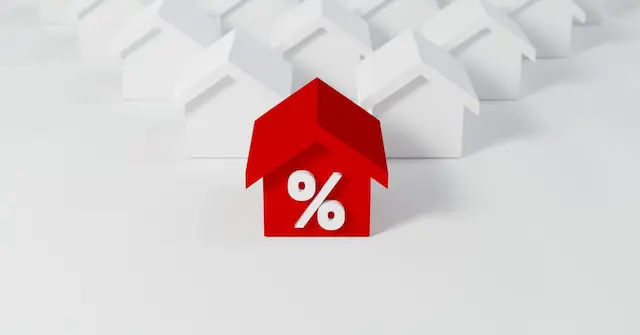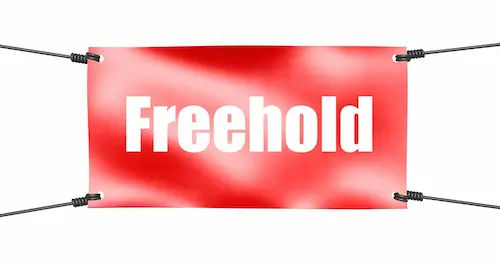Freehold Vs Leasehold Singapore

In the bustling real estate market of Singapore, one key decision that property buyers need to make is choosing between freehold and leasehold properties. But what exactly are these terms and how do they affect your real estate investment in Singapore? A leasehold property is typically one with a 99-year leasehold, meaning you own the property for that period.
The best tips when choosing freehold vs leasehold condos in Singapore are to check the Price, Appreciation, Availability, Resale, Location, and Legacy planning.
On the other hand, a freehold property implies that you hold ownership indefinitely. This guide aims to delve deeper into the intricacies of freehold vs leasehold properties in Singapore, helping you make an informed decision when considering a freehold or leasehold property investment.
Quick Summary
- Best tips when choosing freehold vs leasehold condos in Singapore are to check the Price, Appreciation, Availability, Resale, Location, and Legacy planning.
- When considering freehold and leasehold properties in Singapore, it’s crucial to assess the longevity of ownership, potential for appreciation, cost-effectiveness, resale potential, location, and implications for legacy planning.
- The primary difference between freehold and leasehold properties in Singapore lies in the duration of ownership: freehold offers indefinite ownership while leasehold is typically for a specified 99-year period.
What is the difference between Freehold and Leasehold?
The distinction between freehold and leasehold in Singapore involves ownership duration. When you purchase a freehold property, you and your successors have ownership indefinitely. This is a significant advantage, particularly for buyers who wish to leave a legacy for future generations.
On the other hand, leasehold properties come with a finite lease period, typically 99 or 999 years. Once the lease period expires, the ownership of the property reverts back to the state. While leasehold properties might be more affordable, the diminishing lease can affect the property’s value over time.
Key Considerations
- Investment Outlook: Freehold properties can be a long-term investment with steady appreciation. Leasehold properties, while initially cheaper, may depreciate over the long term as the lease shortens.
- Legacy Planning: If your intent is to leave a property for future generations, a freehold property would be more suitable due to its indefinite ownership duration.
- Budget Constraints: Leasehold properties are generally more affordable than freehold properties. It’s worth evaluating your financial capability before making a decision.
- Location Preferences: Freehold properties are often found in prime districts, while leasehold properties may offer a wider range of locations, sometimes closer to public amenities and transport links.
- Resale Value: Over time, the resale value of leasehold properties may decrease significantly as the lease gets shorter. Freehold properties, on the other hand, maintain their value better due to permanent ownership.
Types of Condo Tenures in Singapore
1. Freehold

As previously explained, freehold condo offers permanent ownership. This means that the property can be passed down through generations without any issue of lease expiry, making it a great option for legacy planning and long-term investment.
2. Leasehold

1. 999-Year Leasehold
This type of condo tenure is almost as good as freehold. With a lease period of 999 years, it’s unlikely that any current owner or their next few generations will live to see the lease end. Properties with this type of lease are typically seen as providing a balance between the finite nature of a 99-year lease and the permanence of freehold.
2. 99-Year Leasehold
The most common form of condo tenure in Singapore, 99-year leasehold properties are typically more affordable and are often located in developing areas with upcoming amenities. However, the diminishing lease term is a significant factor to consider, as it can affect future resale value.
Freehold vs Leasehold Condos in Singapore

1. Price
Freehold condominiums are generally more expensive due to their permanence. Leasehold condos, particularly the 99-year ones, are more affordable and provide a lower entry point into the property market.
2. Appreciation
Over the long run, freehold condominiums tend to appreciate more steadily. Leasehold condos may initially appreciate faster due to the development of amenities in the area but may depreciate as the lease gets shorter.
3. Availability
There’s a wider availability of leasehold condos, particularly 99-year ones, as compared to freehold. This gives buyers more choices in terms of location and price points.
4. Resale
Freehold condos generally have a better resale value due to their indefinite tenure. The resale value of leasehold condos can be significantly affected as the lease term gets shorter.
5. Location
Freehold condos are often located in prime or mature estates. Leasehold condos are more commonly found in non-mature areas, sometimes closer to future growth areas.
6. Legacy planning
Freehold condos are more suitable for buyers looking to leave a property legacy, as they offer indefinite ownership. Leasehold properties, with their finite tenure, are less ideal for this purpose.
Each type has its pros and cons, and the decision ultimately depends on various factors such as your financial capability, investment goals, and personal preferences.
Freehold Vs Leasehold Singapore
Choosing between freehold and leasehold condos in Singapore can be a complex decision. The choice ultimately depends on your individual circumstances, financial capabilities, and long-term property goals. Freehold condos, with their permanence, are excellent for legacy planning and long-term investment, while offering stable appreciation and good resale value.
On the other hand, leasehold condos, particularly 99-year ones, provide an affordable entry point into the property market, with potentially faster initial appreciation and more choices in terms of location. However, they may depreciate over time due to the decreasing lease term. In conclusion, there is no one-size-fits-all answer in the freehold vs leasehold debate. It’s important to carefully consider all factors and, if needed, consult with a real estate professional to make an informed decision that best suits your needs.
Since you’ve made it to the end, why don’t you check out more of our blog posts down below:
- Ultimate Landed Property Singapore Guide (2026)
- Ultimate Guide For Foreigners Buying Property in Singapore (2026)
- Ultimate Guide To Executive Condos in Singapore (2026)
- Ultimate Property Valuation Singapore Guide (2026)
Frequently Asked Questions
If you have any questions about Freehold Vs Leasehold Singapore, you can refer to the frequently asked questions (FAQ) below:
What are the best tips for Freehold vs Leasehold in Singapore?
The best tips when choosing freehold vs leasehold condos in Singapore are to check the Price, Appreciation, Availability, Resale, Location, and Legacy planning.
Is freehold better than leasehold Singapore?
Location plays the most important role in determining the value of a condominium, not its tenure. If a leasehold and a freehold condominium are located in the same area and enjoy the same facilities, it is true the freehold development will usually carry a higher value.
Is freehold really freehold Singapore?
To put it on simple terms, this is the duration of property ownership. In Singapore, there are two types of land ownership, freehold or leasehold. Freehold – means you have full ownership of the land and you own it indefinitely. You can pass it on to future generations without restrictions.
Is buying freehold better than leasehold?
If you’re looking for a long-term investment that offers good returns and the potential for property appreciation, freehold property may be the best option for you. However, if you’re looking for a higher return on investment in the short term and are willing to take on some risk, leasehold property.
What are the two types of freehold in Singapore?
There are two main types of freehold estates: fee simple, where a person owns the land indefinitely, without conditions, and upon his or her death, the land passes onto his or her successors (i.e., the closest to absolute ownership); and life estate, where a person owns the land for the duration of his or her lifetime.
What is a 99-year leasehold property?
A 99-year leasehold property is a type of real estate tenure where the property is bought with a lease of 99 years. After the lease period, the property reverts back to the state. This is the most common type of condo tenure in Singapore.
What are the main differences between leasehold and freehold properties?
The primary difference between leasehold and freehold properties is the duration of ownership. Freehold properties offer indefinite ownership, ideal for long-term investment and legacy planning. Leasehold properties, on the other hand, have a finite lease period (typically 99 or 999 years), after which the property goes back to the state.
Should I buy a freehold or leasehold condo in Singapore?
The choice will depend on several factors, including your financial capacity, long-term property goals, and personal preferences. Freehold condos offer permanent ownership and generally have better resale value, while leasehold condos are more affordable, often located in developing areas, and offer a wider choice of locations.
What impact does freehold status have on the value of a property in Singapore?
The freehold status of a property can significantly impact its value in Singapore. Freehold properties, due to their indefinite ownership, generally command higher prices compared to their leasehold counterparts. This is particularly evident as leasehold properties age and the remaining lease shortens, which can lead to depreciation. However, it’s important to note that property value is also influenced by a multitude of other factors such as location, condition, and market trends.
Is it worth buying a freehold property in Singapore and what should I consider when looking at freehold units?
Buying a freehold property in Singapore can be a worthwhile investment given its potential for long-term appreciation and indefinite ownership. When considering freehold units, it’s crucial to assess factors such as the location, condition of the property, and price per square foot. Additionally, understanding the legal nuances of owning freehold land is essential. These properties can be passed down to future generations, which makes them an attractive option for those looking at property as a legacy asset. Remember, freehold does not mean the property is not subject to any regulations or restrictions, so it’s important to do your due diligence before making a purchase.
Additional Useful Articles
If you are looking for other useful guides and articles about Ultimate Freehold Vs Leasehold Condos Singapore Guide, check them out below:
- Ultimate Freehold Vs Leasehold Condos Singapore Guide (2026) by FunEmpire
- Ultimate Freehold Vs Leasehold Condos Singapore Guide (2026) by Hyperspace
- Ultimate Freehold Vs Leasehold Condos Singapore Guide (2026) by TheFunSocial
- Ultimate Freehold Vs Leasehold Condos Singapore Guide (2026) by BestInSingapore
- Ultimate Freehold Vs Leasehold Condos Singapore Guide (2026) by MediaFirst


